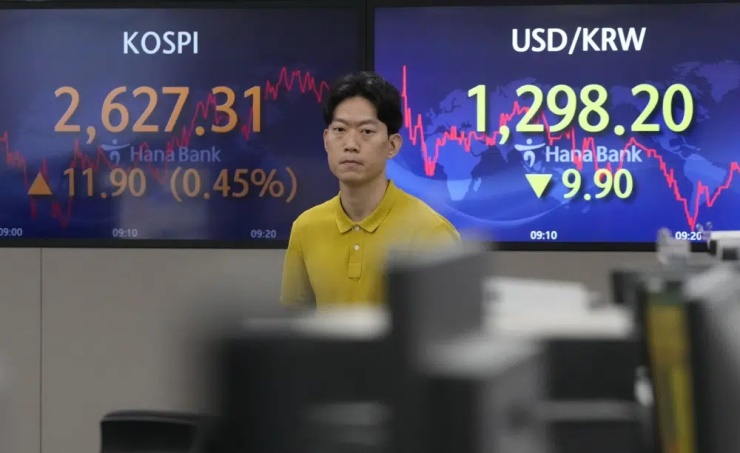Bangkok, June 7 (BNA): Asian stocks were mixed on Wednesday after a day of sluggish trading on Wall Street in the absence of market action data.
China reported its exports fell 7.5% from a year earlier in May and imports fell 4.5%, adding to signs its economic recovery is slowing after anti-virus controls were lifted in December that disrupted travel and trade, according to the Associated Press. Press (AP).
The decline in exports was the first year-on-year decline in three months, with export volumes below their levels at the start of the year. “With the worst yet to come for many advanced economies, we believe exports will decline further before bottoming out later this year,” Julian Evans-Pritchard of Capital Economics said in a commentary.
The Shanghai Composite was almost unchanged at 3,195.88 while Hong Kong’s Hang Seng jumped 1%, to 19,285.10.
The Nikkei 225 index in Tokyo lost 0.8 percent, to 32,234.21. In Seoul, the Kospi Index rose 0.3% to 2623.20 while Australia’s S&P/ASX 200 rose 0.2% to 7143.60. Stocks fell in Taiwan and Southeast Asia.
On Tuesday, the S&P 500 rose 0.2%, to 4,283.85. It’s just 0.2% away from finishing 20% higher than it was in mid-October, as a long-anticipated recession hasn’t happened yet, and excitement around artificial intelligence has helped a select group of stocks rally.
The Dow Jones Industrial Average rose less than 0.1%, to 33,573.28, while the Nasdaq Composite rose 0.4%, to 13,276.42.
Gitlab rose 31.2% after the software development platform gave revenue forecasts for the fiscal year that beat analyst expectations.
Investors are watching to see what happens first: a recession or inflation drops enough to get the Federal Reserve to start cutting interest rates, which have gone up so high that they hurt various parts of the economy.
Next week, the US government will publish its latest monthly inflation update, and the Federal Reserve will meet on interest rate policy. The bet on Wall Street is that the Federal Reserve may stop raising interest rates, which would be the first time it has done so in over a year, but may resume raising rates in July.
Some of the strongest action on Tuesday was in the cryptocurrency world after the Securities and Exchange Commission mandated Coinbase to operate its trading platform as an unregistered national securities exchange, broker and clearing agency.
Shares of its parent company, Coinbase Global, fell 12.1% after the SEC also accused it of being responsible for some of Coinbase’s abuses. Other fees focused on Coinbase’s staking-as-a-service program, where users get paid for their cryptocurrency almost as much as they earn interest from a traditional bank savings account.
Coinbase criticized the SEC’s approach to cryptocurrencies, saying, “The solution is legislation that allows for fair rules of the road to be transparently set and applied equally, not litigation.”
The day before, the Securities and Exchange Commission (SEC) filed 13 counts against another massive cryptocurrency exchange, Binance, and its founder. Binance said it was in discussions to reach a negotiated settlement to resolve the SEC investigation.
The frenzy around AI has helped a handful of stocks soar to massive gains this year, including Nvidia’s 164.5% increase. This helped propel much of the S&P 500’s gains in 2023, but it also caused pundits to wonder if a bubble was forming. They also say that the hype around artificial intelligence may be hiding weakness beneath the surface of the S&P 500.
Although the S&P 500 is verging on a bull market, many stocks within it have pulled back this year as concerns remain about falling corporate earnings, still-high inflation, and interest rates that are much higher than they were a year ago.
In other trading on Wednesday, the price of US crude oil fell 31 cents to $71.43 a barrel in electronic trading on the New York Mercantile Exchange. On Tuesday, it lost 41 cents to $71.74 a barrel. A barrel of Brent crude, the international benchmark, fell 36 cents to $75.93.
Both were close to $120 a year ago, but have fallen amid concerns about the global economy’s need for fuel.
The US dollar bought 139.24 yen, down from 139.66 yen. The euro fell to $1.0690 from $1.0695.
HF
